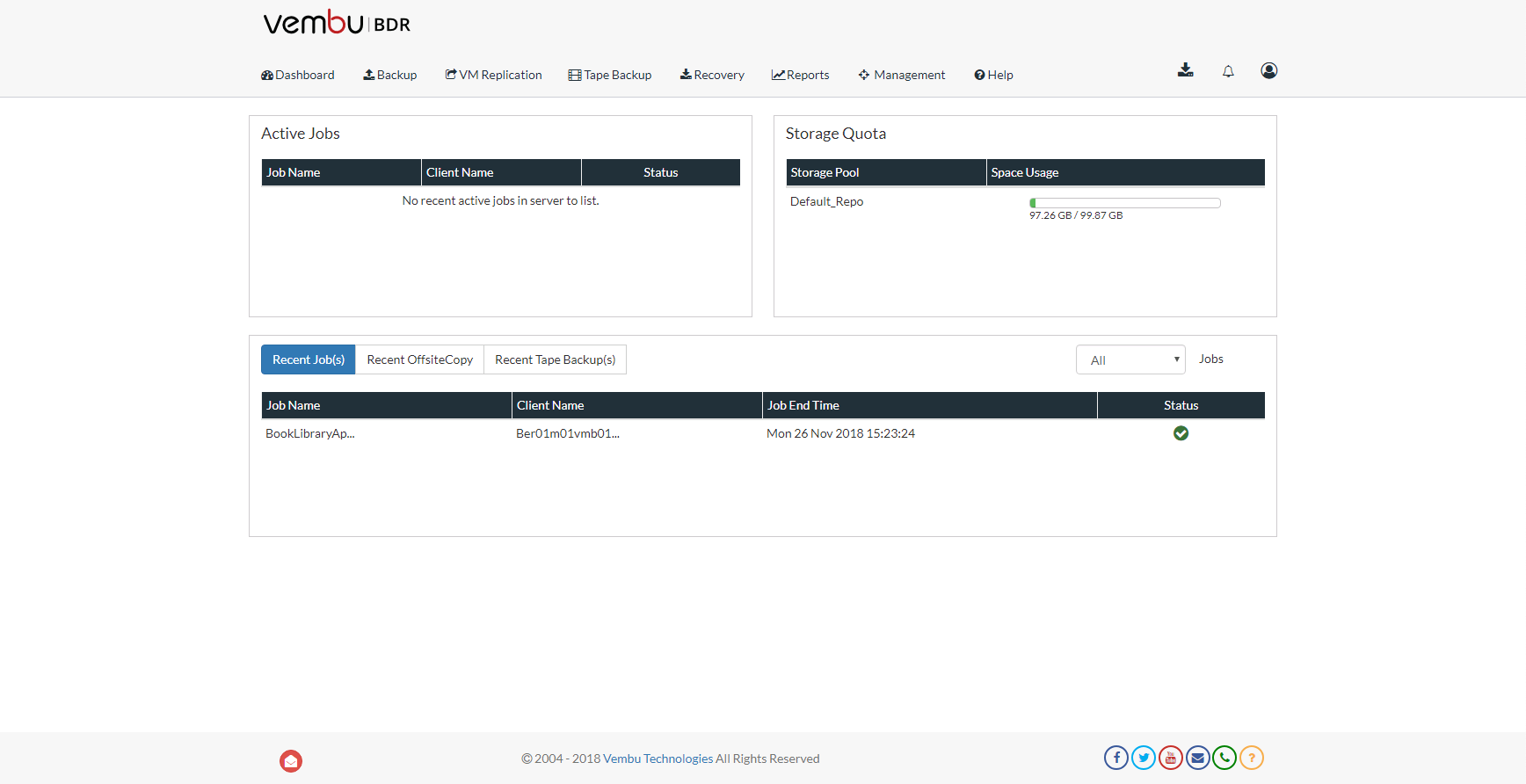In my previous post, I explained how the concepts of Regions and Availability Zones can help you implement an Availability and Recoverability strategy that protects your data on the highest level. This blog post will explain how to configure Vembu BDR Suite as described.
A Solid DR Strategy
With Vembu, you can implement a solid DR strategy in three simple steps:
- Performing host level VMware backup
- Replicating the backed up data to a second region
- then replicating the VMs out of the data center using VM replication
This strategy lets you have 3 copies of your data, across 2 different media types/devices and keep 1 copy of your data in a remote location. As a result, you can create a highly resilient environment to protect your data on the highest level.

You might even argue that the stretched vSAN Datastore that spans availability zones adds a fourth or even fifth layer of data resiliency, depending on then Failures to Tolerate settings within vSAN but that is a different topic. This article focusses on using Vembu BDR Suite to create a highly resilient data protection solution.
Configuring Host Level VMware Backups
I am not going to cover the basic installation and configuration of Vembu BDR Suite. The first step in protecting a VMware environment is adding the VMware vCenter Server to BDR Suite:

After the vCenter Server is added, we can now set up a backup job. BDR Suite does an inventory of the vCenter Server environment and by simply browsing we can select the VMs we want to protect:

The following steps include setting up the way BDR Suite processes the Guest VMs. For sake of this demonstration, I did not configure application-aware backups, so all my backups will restore the VMs in a crash consistent state.
We then set up the backup schedule and finish the backup wizard by entering a Job Name. After running the job, we can see that it completed successfully:

Configuring Offsite Disaster Recovery
In order to replicate backup data to the second region, we first need to deploy the Vembu OffsiteDR Server. The deployment is very straightforward and similar to the deployment of BDR Suite itself. After the initial deployment, we need to connect to the remote site. In the primary site, go to Management, Offsite Copy Management and select Offsite Copy Configuration:

Here, we connect the Vembu BDR Server to the offsite DR Server by enabling Offsite Copy Management and adding a Configured DR Location:

You can granularly control how the replication takes place by configuring the time windows in which the replication can take place, the data retention settings, and bandwidth throttling. There is even an option to do an initial seed of the replication data if there is a large amount you don’t want to send over a WAN connection.

Configuring VM Replication
The final step in this configuration is setting up VM replication. First, we need to add the vCenter Server in the second region to this instance of BDR Suite. Then we set up the replication quite similar to how we set up regular backup jobs. At the fourth step, we configure the target ESXi host to which VMs get replicated:

In the Network Mapping step, we can optionally remap virtual networks:

In an ideal dual region configuration, we would use a network overlay solution, such as VMware NSX to logically extend the layer 2 networks across regions. This way, we don’t have to reconfigure networking after a failover. It goes beyond the scope of this blog post to fully explain the details around this networking aspect. In this demo, I skip the network remapping. VM Replication can also automatically remap IP addresses of replicated VMs during a recovery:

The VM Replication job creates replica VMs in the second data center and uses snapshot technology to replicate the data to the second region:

We can monitor the replication process in the Manage Replicas overview when we select VM Replication, Failover, and Failback:

By clicking on the status icon, we get a more detailed view:

After the replication is complete, we are able to perform a fully automated failover and failback.
Conclusion
Vembu BDR Suite can be configured to create a highly resilient environment in which your data is protected against local failures within an availability zone and regional level failures. Your availability and recoverability requirements will dictate how you will need to granularly configure the different elements of BDR Suite but I hope this blog post provided some guidance on how to get started.
Follow our Twitter and Facebook feeds for new releases, updates, insightful posts and more.



Leave A Comment